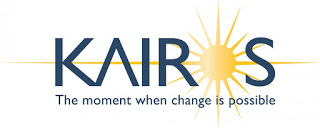In his book Liberation Theology: An Introductory Guide theologian Robert McAfee Brown asks the question: “Is it a Kairos moment for us?” The book was published in 1993. Nearly two years earlier, a Los Angeles taxi driver named Rodney King was chased and then beaten by four LA police officers; a video camera captured the beatings and the whole world watched. A year later in August 1992 when the four officers were acquitted of charges of assault and battery, riots erupted in the South Central section of LA, and over 2000 persons were injured while 53 were killed. As South Central burned, Rodney King was quoted asking “Can’t we all just get along?”
These events, and the national controversy that followed, highlighted a number of chronic ills in American society including institutional racism, economic disparity, police brutality, unequal educational opportunities, political polarity, and inequity in the criminal justice system. Brown wrote: “If ever there was a ‘Kairos time’ this is it.” (p. 109).
Kairos is a Greek word for time used in the New (or Christian) Testament of the Bible to signify a moment for decision or a time for opportunity. Kairoscontrasts with another Greek word for time, Chronos, which also appears in the New Testament, but refers to measured time or clock time. Chronos is used when we say “the time is 3 o’clock,” whereas Kairos is used when we say “our time has come!” Kairosmeans there is coming together of several factors that cause this moment to seem significantly pregnant with possibilities for new life, new action, and new opportunities.
So when Brown asks “Is it a Kairos moment?” what he is really asking is: “Are we up to the challenge of the present opportunities? And “Are we ready to seize and act on those opportunities?” That question was posed over 20 years ago, and it would seem that the problems, challenges, and disparities that existed in 1993 have been greatly exacerbated in 2015. There is a chilling similarity in the deaths of Michael Brown, Eric Garner, Freddie Gray, and Tamir Rice to the beating of Rodney King. While not as devastating as the 1992 riots of South Central, there is an echo we hear in the 2015 riots in Baltimore. Racism, economic disparity, educational inequity, and police brutality are even more pronounced today than they were in 1993, and the political divide we see in legislatures from Washington D.C. to every state house and city hall makes 1993 seem like a harmonious time. If Brown could ask about Kairos in 1993, we have even more reason to do so in 2015.
The big difference I see today as opposed to 23 years ago, is that a sustained and organized movement linking racial, economic, social, and criminal justice together has taken shape in the country. Black Lives Matterhas joined forces with the movements for a $15/hr. minimum wage, job creation, improved public education, and accountability for law enforcement officers. While there was looting in Ferguson and violence in Baltimore, what has emerged far stronger is a multi-racial, multi-ethnic, multi-class, cross-generational movement saying that things have got to change. Centuries ago St. Augustine of Hippo said that Hope has two daughters –anger at the way things are and courage to change them. In our time we see organized anger and courage confronting employers to raise their wages, pressuring legislators to fully fund public schools, and calling local police departments to public accountability.
To those who like and benefit from the way things are, this coordinated movement is not good news; in fact it is quite threatening. Those who live comfortable geographical and emotional distances from the suffering of the vast millions in our country don’t want to see their taxes raised, their profits diminished or their livelihood challenged. To many in positions of comfort and power, these events seem to suggest that the very fabric of the nation is coming unraveled. Their fears are well-founded because if this movement continues, the fabric of a society that benefits the few at the expense of the many will begin to unravel. If this movement continues, those who have been able to ignore and benefit indirectly from the status quo will find their comforts challenged.
I do not say these things lightly or without some fear of my own. The explosion of anger that occurred recently in Baltimore reveals a seething rage that exists in many communities. While no one is calling for or looking for violence, when rage is released, it can be destructive and devastating. This is why leadership is so critical, particularly among the young. The elders from the days of Civil Rights and other movements can advise, but the young carry the energy to move things forward. So the young leaders of the unions, racial justice, and social justice groups are so critical to capitalizing on this moment.
The fact is things must change in our society. The fact things are not as they should be in the U.S. When we have a public school system that systematically under-funds schools in poor areas and in communities of color, things must change. When ten percent of the population controls 70% of the wealth, things must change. When someone works a full time job for $7.25/hour and cannot afford to feed, house and clothe themselves much less their family, things must change. When Black and Brown men are twice as likely to be convicted and incarcerated for the same crimes committed by White folks, things must change.
These things must change, and if they do change, they will be disruptive to the society as we know it. The question remains: will these young leaders and the movements they represent seize the moment? Will things actually change? Perhaps it is too early to tell, but there seems to be an alignment of awareness, leadership, organization, and the will to challenge the dominant powers, and so it just might be we are in a Kairos moment.
[Images from Google Images]



Drick,
You know we are looking at a process here at church to reflect on our own need for change and growth in the area of racial justice. Just last week, I began wondering if framing it in terms of a "Kairos" moment would be a good frame. I love the synchronisity with your column today. And i appreciate how you interpret and break down the question.
W
Drick, When are you going to apologize for calling Darin Wilson a racist and an assassin. All the evidence shows he was attacked and responded appropriately. There was no "hands up,don't shoot". It was all a lie perpetrated by people like yourself. My son-in-law's good friend is a cop in Denver. His partner was critically injured trying to protect high school kids that skipped school to protest "hands up, don't shoot"….something that didn't happen. As a Christian pastor I assume your apology to Officer Wilson is to follow and maybe you will head to Denver and fund raise for this very good man, doing his duty as a sworn police officer.
I heard a very well spoken black man speak this week. I will try and get you his name. He grew up angry, angry that his Dad was gone and angry at his Mom for not keeping Dad around. He overcame that anger through the love and grace of our Lord. If we are going solve all this it has to start with the family, and God. All the money in the world is not going to solve it. Prove me wrong!!
Steve
Drick, What accusations did I make that are the same as made against Dr.King?
As to Ferguson, all the evidence showed Brown attacked Wilson. Read the coroner report Drick. Read what the eye witnesses said to the DOJ. I did. I like facts before I make a judgement. You don't condone the violence, but you called the cop a racist and an assassin. You think those kind of comments lead to "non-violence". Look me in the eye and say that.
One thing we agree on is that significant change is needed. I stand by the need for family and God, tell me where I'm wrong.